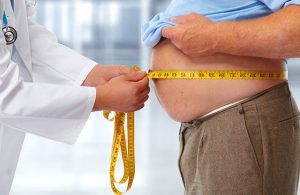What is the Gastric Bypass?
Gastric Bypass is a type of weight-loss surgery that involves creating a small bag from the stomach and connecting the newly created bag directly to the small intestine. After gastric bypass swallowed food will go into this small bag of stomach and then directly into the small intestine so that bypassing most of your stomach and the first section of your small intestine.
Gastric bypass is one of the most common types of bariatric surgery. Gastric Bypass is done when diet and exercise haven’t worked or when person have serious health problems because of excessive weight.
The operation is done with laparoscopically (Laparoscopy is a type of surgical procedure that allows a surgeon to access the inside of the abdomen -tummy – and pelvis without having a large incision in the skin.
This procedure is also known as keyhole surgery or minimally invasive surgery.
Why do you need Gastric Bypass Surgery?
Gastric bypass is done to help lose excess weight and reduce risk of potentially life-threatening weight-related health problems, including:
- Gastroesophageal reflux disease
- Heart disease
- High blood pressure
- High cholesterol
- Obstructive sleep apnoea
- Type 2 diabetes
- Stroke
- Infertility
If you have Diabetes, Asthma, Hypertension Can You Still Have the Operation?
Those medical complications are the main indications / signals which can cause severe obesity therefore mostly are the reasons for having Gastric Bypass.

Leaking Test in Gastric Bypass Operation
During and after (2nd day) the operation the surgeon will check whether any leaking risk is on due for complication. If there is any leaking the stiches may insert into the skin to prevent the leaking. And before start having with liquid foods it is also crucial to run the leaking test.
Why do you need to take blood thinning medication after the Gastric Bypass Operation?
There is always a risk (minimum or maximum) of blood clothing (obstruction of the vein) after any operation and that risk can be maximise if the patient is overweighed and not be able to mobilise straight after the operation. Cardiac complications and previously blood circulation problems (embolism) are also group of medical complications which patient must be on blood thinning (anticoagulant) medication.
How to deal with after operation pain?
The surgeon prescribed pain killer needs to be taken on a regular basis in order to prevent the pain. As the operation is done under the laparoscopic surgery the expected pain level is minimal.
How to deal with operation scars after operation?
Laparoscopic incisions do not leave much operation scars and in couple of months the scars will fade on. Please use the prescribed lotion-ointment to help the operation scars.
When to start eating?
Following your leaking test (2nd day ) if everything is acceptable you may start with liquid and soft foods for the next 2 weeks .Stay in touch with your dietitian all the time.
For the first 15 days you need to be on straight protein diet and 1st year extra vitamin and mineral supplements you need take in.
How soon patient can be mobilizing?
Straight after the operation usually in 2-3 hours you can stand up and walk. Beware of with not doing heavy lifting. Office staff can back to work after a week.
Any risks of gaining weight again?
The risk of gaining weight is rather low. Unless you have high calorie snacks. The person must change previous eating habits in order not to gain weight.
Disadvantage of Gastric Bypass Operation to Compare with Sleeve Gastrostomy Operation:
- Causing for long term vitamin and mineral deficiency (Vitamin B12, Iron, Calcium and Folic Acid).
- Life term follow up with dietitian and taking vitamin and mineral supplements.
- Result of weight gaining the options of surgical interventions are rather limited.
- Medical problems with pancreas and bile duck may not be interfere surgically.
If you want you can reach us via Whatsapp. Our Number: +90 544 766 30 30
